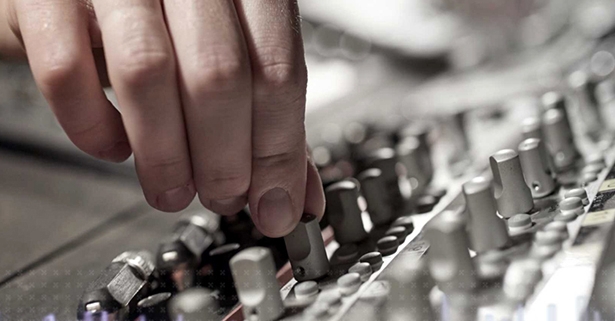A sound engineer uses electronic and mechanical devices to copy, mix, and record sounds. Sound engineering involves using a variety of devices to record sound – an electronic mixing Board (Console Board), which includes a number of buttons, dials, lights, and meters. Sound engineers use the latest audio equipment and computer software.
A sound engineer is indeed indispensable for artists, record labels, films and television production, collaborating with whoever needs his skills and expertise. But if you want to branch out as a freelance sound engineer, it is a natural progression. However it is important to mention here that before you hitch your bandwagon to the freelance star, it is important for you to have had a basic training, and some experience in the field. So before you start out as a freelancer, keep the following in mind:

Get solid knowledge
Get a solid training base. How can you do that? Easy enough – enroll for a sound engineering course that offers you the practical insight into the nuts and bolts of sound engineering. It would be of huge advantage if your teachers/mentors are people from the industry, so that you know exactly what happens on ground, and what are the things that you have to deal with as a sound engineer.
Get some hands-on experience
Even if you think that becoming a freelancer is your final aim, it would still be well worth the while to gain some industry experience. This experience is essential for you to gain knowledge into the workings of the trade.
When you start out as a freelancer later, selling your services to your client would be backed up by the real experience you’ve had in the past. It adds weight to your resume as a freelancer when you have a list of works to your credit already.It works as a great reference and proof of your work ability.
Join a production house
You could join a production house as a sound engineer to get that kind of experience. This would help you put your training to use in the real environment and get more proficient in using the devices and equipment. During your stint at the production house, work hard and add a variety to your work.
Develop qualities
You have the training, the essential aptitude and inclination, and now you need to sharpen your abilities even further. The most important thing for you is to recognize the sounds and use them in different contexts.
While working at the production house, you will get used to working for hours, have patience, develop concentration and work with an entire team. Hard work in this field is the key to success. The more effort you make the greater are your chances to make a name for yourself.
Start out small
Do not be very ambitious about making huge money from the word go. For people to know you, you will have to promote yourself for a price that you may find unattractive, but if it is an event, which gives you great visibility, go for it.The more you perform, the more you get noticed in the circuit and grater are the chances for you to be offered more work. Just start small, experiment, and progress slowly as needed.
Those with the small budgets are the clients that you will pick up initially. Take this as your boot camp. This will prepare you for the bigger artists and also accelerate your career because these small budget clients are the ones who are going to spread your name further. And other things remaining equal, if their music is a success, your name gets highlighted even more.
Go out and have a presence
You need to build an image around yourself. You should be visible as an entity. Get a demo reel, put together a website, have your business cards handy to give out at every possible opportunity to the people in business.
Go out to shows. Be confident and give people the confidence that you are equipped to handle their music and work.Once the job is done, make sure the credits are rolling in your name and remind the artists you work with, to spread your name around.
If possible, set up your own studio
After gaining enough experience and understanding of each nuance that differentiates a sound engineer from a really good sound engineer, take your chances and set up your own studio if you have the financial and logistical bandwidth to do the same.

It really works in your favour as a freelancer to have your own a recording studio and recording equipment. In this recording studio, you must have basic acoustics besides good quality mixing board and microphone etc.In case you do not have your own studio, you can hire out other studios and use their facility for a fee.
Use social media for promotion of your work
Whether or not you have a studio of your own, you need to have a digital presence. We spoke of setting up a website but you also need to be out there where your community of film, TV and audio producers hangs out in the digital space.Use social media platforms effectively to reach out to prospective clients. Engage in a dialogue with them. Have a blog which reflects your mastery over the technical aspects of sound engineering. Talk of related events and innovations in the field.
Publish your works so that your work is out there for the world to see. On your website, you should not forget to state that you are always available to render your services on a freelance basis.The prospective clients may want to know what services and kind of sound you can deliver. Try to convince them about your past experience and the quality of your work.
Develop contacts and join associations
Another important thing for success as a freelance sound engineer is how resourceful you are and how big is your network. So, you must try to expand your network in production houses and music and stage show companies.
Try to meet potential clients during events and music shows
Not only that, develop relations with the local professionals in your field. Also become a member of the association of broadcasters and Audio Engineering society etc. Always attend their conferences since these events provide a good opportunity to develop connections with other professionals and clients. You will get some creative ideas on attending events. Keep your business card with you, and dole it out in abundant measure when you meet people from the industry during events.
What about income?
When you are working in some production house or a studio, initially a sound engineer generally gets about Rs. 10,000. As he gains experience his income rises with the passage of time. He may get Rs. 100,000 to Rs. 1.5 lakh per month depending on his quality of work. According to experts, the harder you work hard and give new things to the market the more are your chances to earn. When you are working as a freelancer and you have earned a reputation in the market, clients will make a beeline for your studio and everybody will want the work to be done by you.
How does Patsav figure into your scheme of things as a freelance sound
There are several institutes and colleges in the country offering sound engineering courses. There is however a distinct advantage in opting for PATSAV for a sound engineering course. One, it has the stae of the art equipment and its sound engineering course is certified by MESC under the Skill India Initiative of the Govt of India. Two, it has faculty members who are from the industry. The result? You have a ready networking circuit which can promote you. Three, it guarantees you a 100% job placement. And that’s your start point. From thereon, you just build your skills and abilities till you are ready to branch out on your own as a freelance sound engineer.







Hello. This post was really remarkable, especially because I was browsing for thoughts on this issue last Sunday. Kriste Nobie Iain
This is one awesome blog. Thanks Again. Keep writing. Pat Natty Clein
Whenn some one searchs for his required thing, so he/she neerds to be available that in detail, therefore that thing is maintained over here. Sigrid Guntar Hesta
Good day very cool site!! Man .. Beautiful .. Amazing .. Emelyne Jeremiah Garmaise
Im thankful for the blog article. Thanks Again. Want more. Tierney Guido Janiuszck
There is obviously a lot to know about this. I feel you made various good points in features also.